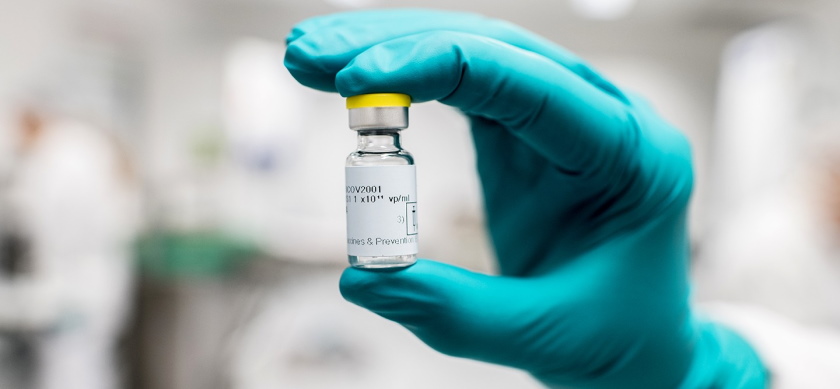FDA adds warning of rare neurological side effect to J&J COVID jab

The FDA has added a new warning on the Johnson & Johnson COVID-19 vaccine, saying the shot has been linked to a serious but rare side effect – Guillain-Barré syndrome – that can cause muscle weakness.
The change to the vaccine's emergency use authorisation (EUA) label comes after around 100 cases of Guillain-Barré were detected in recipients after 12.8 million doses of the one-shot vaccine were administered, according to a Washington Post report which cited figures from the Centers for Disease Control and Prevention (CDC).
The cases have mostly been recorded two weeks after vaccination and seem to be more common in men aged 50 and older. Almost all of the cases required hospitalisation and one person died.
The updated labelling for the vaccine advises patients to seek medical attention if they develop weakness or tingling sensations, particularly in the legs or arms, difficulty walking or making facial movements, double vision or an inability to move they eyes, or problems with bladder or bowel control.
J&J requested the change to the label, which was confirmed in a letter to its Janssen Biotech subsidiary from the FDA yesterday.
The syndrome is an immune system disorder that causes nerve inflammation and can result in pain, numbness, difficulty walking and in severe cases paralysis. The risk with the J&J vaccine is around three to five times higher than would be expected normally in the general population but remains a "small possible risk."
J&J said in a statement that the chances of having this reaction is "very low", with most cases occurring within 42 days after vaccination.
The AstraZeneca/University of Oxford vaccine – which like the J&J shot is based on an adenoviral vector – has also been associated with rare cases of Guillain-Barré, and had its labelling updated to reflect this in Europe earlier this month. AZ's vaccine is not yet authorised in the US.
J&J's vaccine has also been contraindicated in people with capillary leak syndrome, a rare and serious condition that causes fluid leakage from small blood vessels, after cases of the syndrome – and some deaths – were seen in a handful of patients who had received the shot.
Earlier this year it was also linked to clotting disorders, a risk that has also been added to its label as well as for the AZ shot.
J&J's vaccine hasn't made the impact the company hoped since its EUA in February, in part because of supply issues caused by production quality issues at a plant operated by contract manufacturer Emergent BioSolutions that resulted in 60 million doses going to waste.
Some US states have reportedly been struggling to use up surplus stocks with other vaccines becoming more widely available and the reputation of the J&J shot damaged by the manufacturing issues and side effects.
In its statement, J&J said its vaccine "offers protection against COVID-19 disease and prevents hospitalisation and death, including in countries where viral variants are highly prevalent."
It went on: "A single-shot vaccine that provides this level of protection represents an important tool in the global fight against COVID-19, as we strive to help end this deadly pandemic."
Last week, the US government said it was donating 12 million doses of the vaccine to the COVAX scheme, which is helping to distribute supplies to lower-income countries. The first shipment of 1.5 million doses arrived in Afghanistan on Friday.











